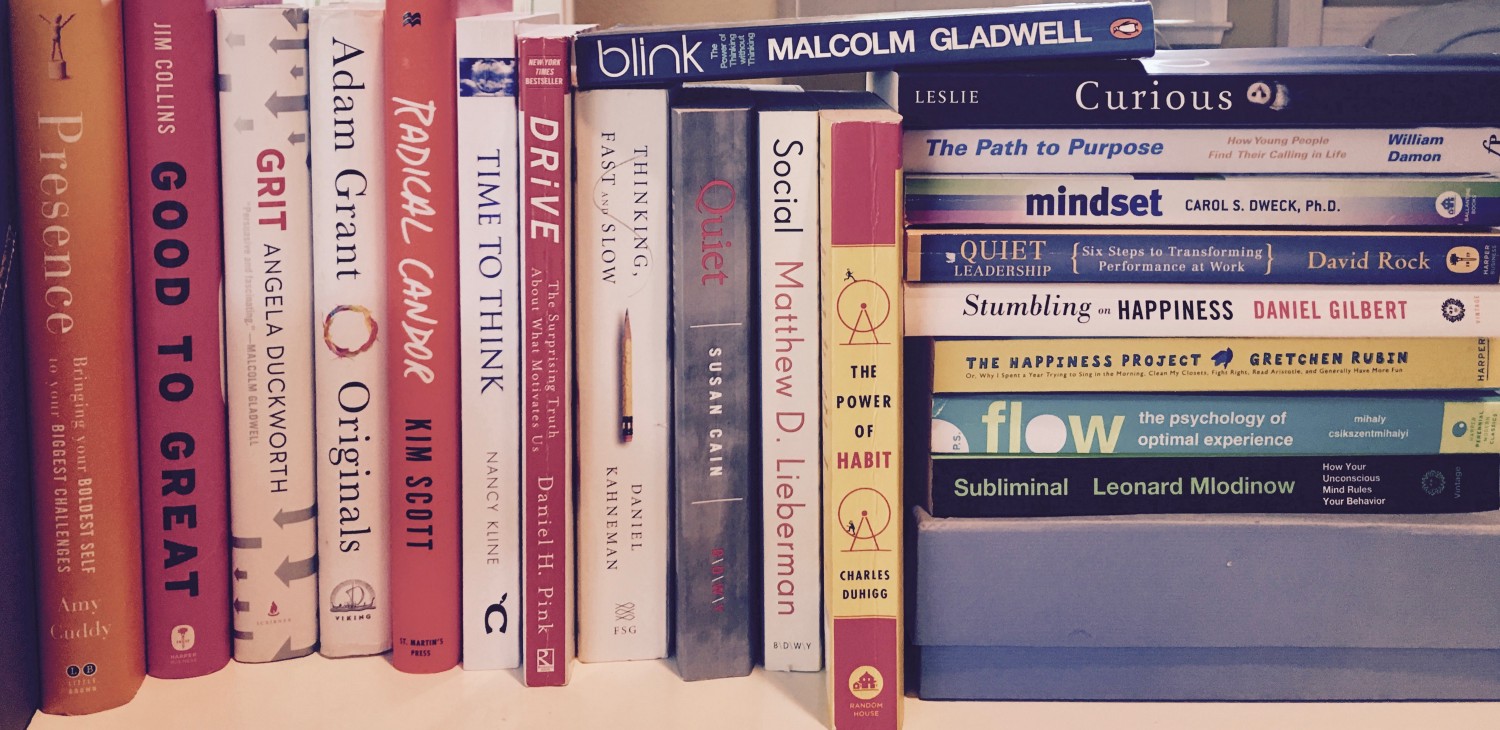…And 9 That Are Actually Worth Reading
One of the joys of coaching and navigating people’s habits and behaviors is discovering the vast range of literature out there to help you. Walk into any independent bookshop and you’re presented with an open table of snappily titled bestsellers. But where do you start?
The first thing you notice is how similar they are. They all follow a formula, brilliantly established by Malcolm Gladwell with ‘The Tipping Point’ and ‘Blink’, and copied by pretty much everyone since then.
It goes something like this:
1) Choose a polemic. Ideally an ancient battle between two opposing human conditions — Emotional vs Rational, Effort vs Ability, Growth vs Fixed, In vs Out, Fast vs Slow, Beatles vs Stones (ok, you get the idea).
2) Flesh this out over 250-or-so pages with academic research, historical examples, first-person case studies (‘…it was a crisp October morning and Susan woke with an unusual sense of foreboding’) and some epic tale chronicling the author’s own personal battle with the issue.
3) Pick a sexy noun for the title (e.g. ‘Presence’, ‘Habit’, ‘Grit’, ‘Drive’). You can have an interesting sub-head (‘The surprising truth about x and y’), but it mustn’t interfere too much with the title. In fact, the more complicated your idea, the simpler the title has to be.
3.5) Get Gladwell to give you a quote for the cover.
Follow these steps and you are well on your way to a New York Times best seller (and when you get that, mention it on the cover too). So this is the formula — and given that the self-help market in the US alone is worth over $10billion, it is clearly working. Despite the tried-and-tested formula, there are some great books out there — books that are helping millions of people understand and improve their lives. In fact, since dedicating the last 6 months of my life to reading as many of them as possible, I have become hugely enriched by their knowledge (and imminent quotability).
So here are the nine books I recommend to start with. These are the choice few that I found useful on my coaching ‘journey’ (and it is always a ‘journey’, isn’t it), bucketed into three groups — Changing Thinking, Changing Behaviors and Changing Work.
Changing your thinking
I started with ‘Mindset’ by Carol Dweck. The first book I read also happens to be the best place to understand the basics — in particular ‘growth’ vs ‘fixed’ mindsets. See also ‘Thinking Fast and Slow’ by Daniel Kahneman. A denser read, but if Dweck is the Queen, Kahneman is the King of all ‘2-type’ brain thinking. And for a decent understanding of Silicon Valley, and the bunch of crazy introverts who run the place, ‘Quiet’ by Susan Cain is an essential read.
Changing your behavior
While our obsession with tiny screens seems to have made it harder to get lost in any moment nowadays, there is a handy route map to purposeful joy in ‘Flow — the Psychology of Optimal Experience’ by Mihaly Csikszentmihalyi (pronounced ‘Chick Sent Me High’, apparently). He is quoted heavily by pretty much everyone and his ‘Flow’ concept has transcended academia to become a globally recognized path to enlightened enjoyment and purpose. In this vein I also very much enjoyed ‘Grit’ by Angela Duckworth and ‘The Power of Habit’ by Charles Duhigg. As always, when you are studying similar concepts the quality of the writing is what really sets apart the wheat from the chaff, and Duckworth and Duhigg are highly engaging writers.
Changing work
Where the self-help market has really exploded is in applying the latest habit and behavior research to the workplace. Because that’s where the money is, in every sense. These books attempt to answer one simple question — how do you make work (or your company) great? The best place to start is the emphatically titled ‘Good To Great’ by Jim Collins. Collins has made a career of documenting what makes some companies ‘great’ and others ‘meh’ and ‘Good to Great’ is a romp. I also enjoyed Adam Grant’s ‘Originals’ (topline finding — procrastination is good, hooray!) and Kim Scott’s ‘Radical Candor’, the latter serving as a good template for anyone who wants to avoid becoming the office Michael Scott/David Brent.
These are just a few of my choice picks — there are many others, with more coming out each year. But if you read only these nine you will be well on the way to considerable self-improvement, in the process creating a ‘Subliminal Habit of Original Quiet Grit Flow’.
Originally published at medium.com


